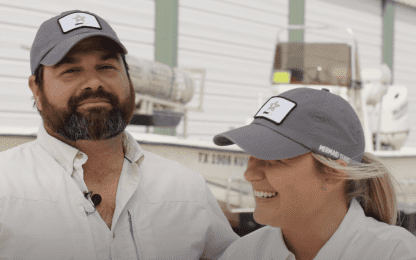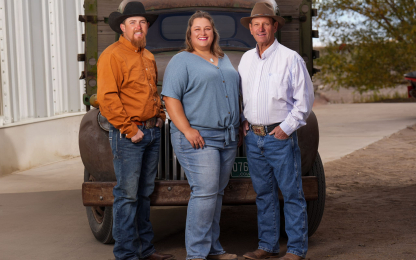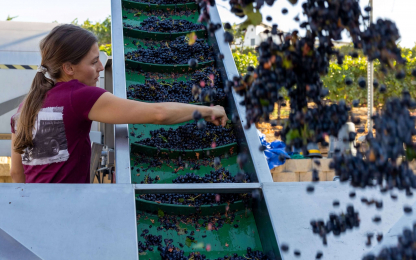A fascination with American history transformed the Lieb family farm into what it is today.
The late Terry Lieb began as a cattle and hog farmer. However, in 2000, he purchased a herd of tame American bison, something he’d always dreamed of doing. Today, Terry’s sons Jake and Josh, who are equally passionate about American ecological history, manage the Lieb Farms, producing corn, soybeans and 50 head of bison.
“When you look over the pasture, seeing a herd of bison in the tall blowing grass is as close as you can get to re-living American history. They’re the first bison on that grass in close to 200 years and it’s stirring to bring that back to life,” Jake said.
Farm to Fork
The Liebs’ bison experience life much in the same way as those who roamed similar pastures centuries earlier would have. They breed naturally and live free from antibiotics and vaccinations.
“The biggest draw for consumers is knowing exactly what our animals have eaten or been treated with,” Jake said. “Visitors from in and outside of Illinois come to the farm to purchase meat and see the bison for themselves. We use farm visits as an opportunity to educate consumers on the family farms’ modern food production from bison to field corn.”
Utilizing Innovation
As fifth-generation young farmers, Jake and Josh incorporate innovative technologies and agricultural practices into their farm management practices. They use GPS mapping, employ conservation tillage and plant cover crops to benefit their business while also caring for their land.
“Farmers must constantly evolve their practices. Farming requires initiative and foresight to know what could work today while sustaining the soils for future generations,” Jake said. “One day, I want my grandkids to have access to the best soil on the planet, so I don’t want it to blow away or wash down the Mississippi. The land is just ours to borrow; you have to leave some for tomorrow.”
A Trusted Partner
As the Liebs plan for the long term, they rely on advice from industry experts, including Farm Credit Illinois, and take advantage of learning opportunities through the FreshRoots young and beginning farmers program.
“Few young people have the opportunity to come back to the farm and of those who do, many may not be willing to risk everything when there isn’t much of a margin between a profit and a loss,” Jake said. “That’s a reality farm families are living and that’s where Farm Credit steps in to provide the working capital we need to get through the year; it’s vital to have a good creditor on our side.”
This story originally appeared in Farm Credit Illinois’ biannual newsletter, Cultivations.


